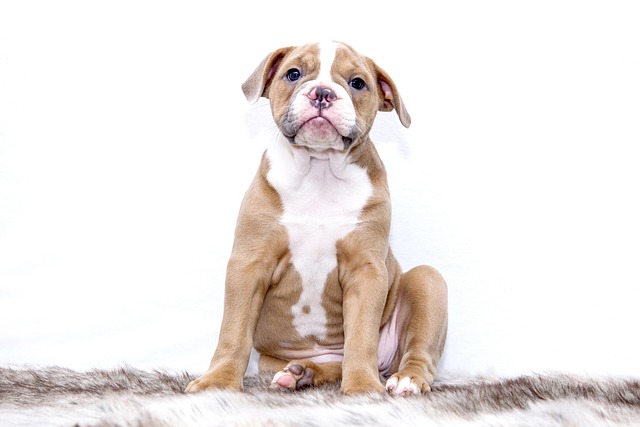
How can I tell if my dog's heatstroke is serious
Let’s be real: It’s a sticky August morning in Los Angeles, and you took your 2-year-old Golden Retriever, Max, for a walk a little later than usual
Coconut oil’s been making the rounds in pet care circles, but when it comes to bulldogs and those adorable wrinkles, you can’t just wing it. Those folds are part of their charm, sure, but they’re like little pockets that trap gunk—moisture, food bits, all sorts of stuff that can bug their skin if you’re not careful.
Before you grab that jar, swing by your vet’s office. Bulldogs are tricky; one might handle coconut oil fine, another could break out in a rash. Vets know your pup’s history—allergies, past skin issues—and can tell you if this is a good move. Skipping that chat might mean missing something that could make things worse, not better.
If the vet gives the okay, start super small. Dab a tiny bit on one wrinkle, like the ones near their nose, and keep an eye out. Redness? More scratching than usual? Licking that spot nonstop? Those are signs to wash it off and nix the idea for now.
Always clean the wrinkles first. Grab a soft cloth or a pet-safe wipe—nothing with strong scents—and gently pat the folds dry. Wetness plus oil is a recipe for trouble, like yeast or bacterial infections that’ll have you rushing back to the clinic.
 Stick to the good stuff: unrefined, organic coconut oil. The processed kinds often have additives that’ll irritate their sensitive skin. And go easy—too much leaves their wrinkles greasy, which just attracts more dirt. Think of it like lotion for yourself: a little does the job.
Stick to the good stuff: unrefined, organic coconut oil. The processed kinds often have additives that’ll irritate their sensitive skin. And go easy—too much leaves their wrinkles greasy, which just attracts more dirt. Think of it like lotion for yourself: a little does the job.
Remember, regular upkeep beats any quick fix. Wipe those wrinkles down daily, especially after meals (we all know bulldogs are messy eaters) or playtime in the grass. Keeping them clean cuts down on the need for extra products in the first place.
Check local rules, too. Some areas have lists of approved ingredients for pet care, even natural ones. It’s not about being strict—it’s about keeping your pup (and your household) on the right side of things. No one wants a surprise visit over something avoidable.
If you notice a weird smell or the skin looks swollen, stop using the oil right away. Those aren’t just minor annoyances; they’re red flags for infections that need professional care. Your vet can prescribe something stronger than coconut oil if that’s what’s needed.
And let’s be clear: coconut oil isn’t a replacement for regular vet checkups. Those yearly visits (or more, if your bulldog has skin issues) are how you catch problems early, before they turn into big headaches. Think of it as team work—you handle daily care, the vet handles the big picture.
At the end of the day, it’s all about keeping your bulldog comfy. Coconut oil might work for some, but it’s not a magic solution. With your vet’s go-ahead, a gentle touch, and lots of patience, you’ll find what keeps those wrinkles happy—and your bulldog wagging that stubby tail.

Let’s be real: It’s a sticky August morning in Los Angeles, and you took your 2-year-old Golden Retriever, Max, for a walk a little later than usual

You're enjoying a summer afternoon at the park when you notice your dog has stopped panting and appears disoriented - their gums are bright red

Let’s paint the picture: You’re in your Denver apartment, watching your 4-year-old Boston Terrier, Ruby, plop down mid-play session with her favorite toy

Many dog owners notice their pets nails seem shorter after regular walks,but how much does this daily activity actually help?The answer depends on where you walk—concrete sidewalks or asphalt streets gently file nails as a dog's paws hit the ground

Most dog owners notice their pup scooting across the carpet at some point, but few connect it to impacted anal glands. These small sacs near a dog’s rectum secrete a scent for marking territory

Most vets agree that regular dog teeth cleaning is key to avoiding painful dental issues later. For healthy adult dogs, a professional cleaning at the vet’s office every 12 to 18 months usually works well.